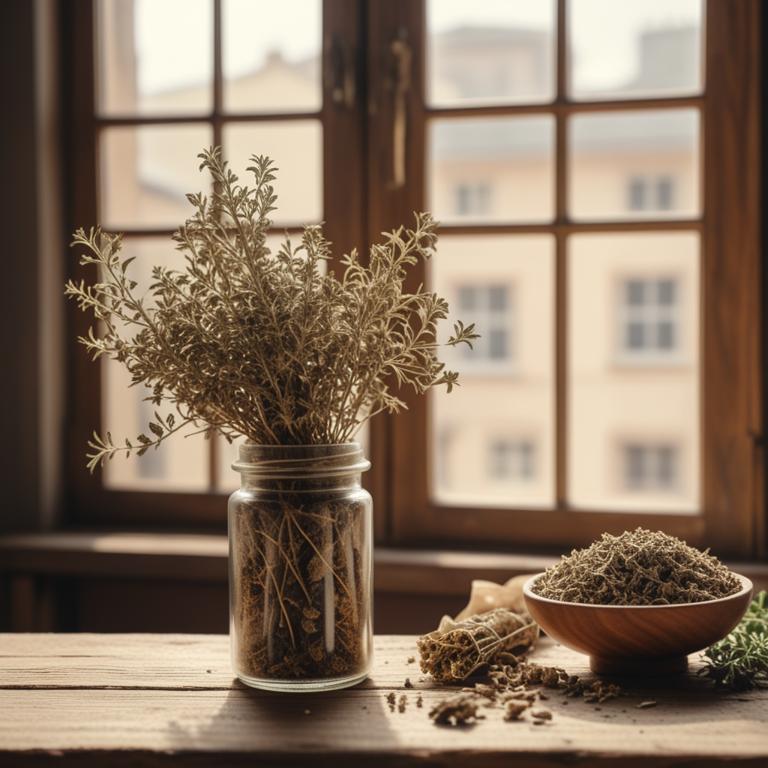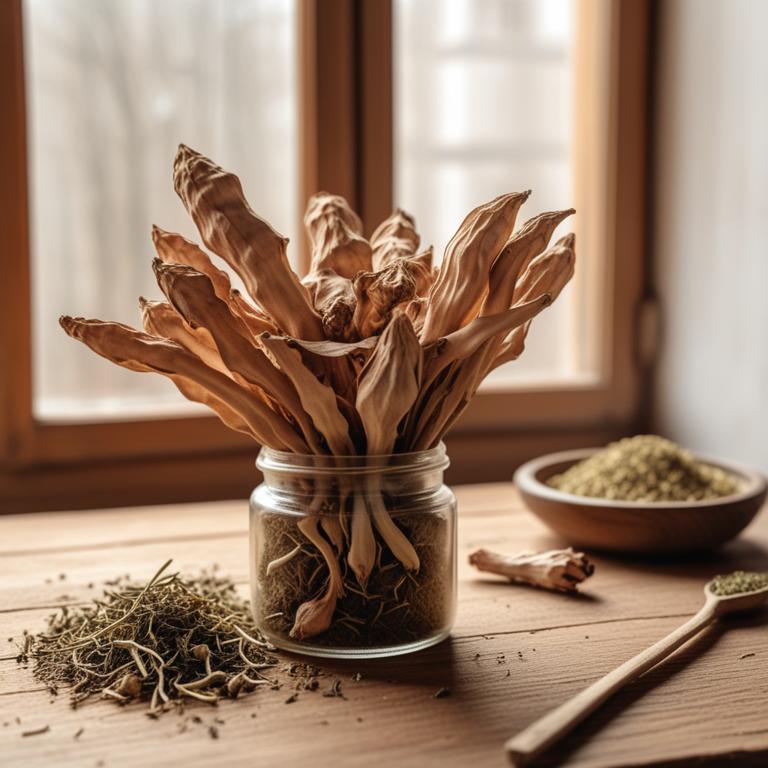Updated: Dec 1, 2024
Causes and Herbal Treatments for Upper Abdominal Pain

Upper abdominal pain can be a real nuisance, affecting your daily activities and making it hard to enjoy your favorite foods.
It's a common complaint that can be caused by a range of factors, from eating too much or too quickly, to stress, anxiety, or even underlying medical conditions such as gallstones or gastroesophageal reflux disease (GERD). When you're experiencing upper abdominal pain, it can feel like a tight knot or a burning sensation, making it uncomfortable to sit, stand, or even breathe. Fortunately, there are some natural remedies that can help alleviate upper abdominal pain.
Herbs like ginger and peppermint have anti-inflammatory properties that can soothe the digestive system and calm the stomach. Chamomile and lavender can also help to relax the muscles and reduce stress, which can contribute to abdominal pain. These herbs can be consumed in various forms, such as teas, capsules, or even as essential oils added to a warm bath.
Drinking a soothing ginger tea, for example, can help to ease digestion and reduce discomfort, while a chamomile tea before bed can promote relaxation and a good night's sleep.
Table of Contents
- What are the sources of upper abdominal pain?
- What advantages does using herbs offer for managing upper abdominal pain?
- What are the key medicinal herbs that provide relief from upper abdominal pain?
- What herbal preparations are most frequently used to treat upper abdominal pain?
- What herbs are not recommended for people with upper abdominal pain?
- FAQ
What are the sources of upper abdominal pain?
The main causes of upper abdominal pain are various and can be quite different.
One of the most common causes is gallstones, which are hard, small stones that can block the bile ducts and cause severe pain in the upper right or middle abdomen. This happens because the stones can get stuck in the ducts and prevent bile from flowing into the small intestine, leading to a buildup of bile and causing pain. Another possible cause of upper abdominal pain is pancreatitis, which is inflammation of the pancreas, a gland that produces digestive enzymes and hormones. This condition can be caused by gallstones blocking the bile ducts, leading to inflammation of the pancreas, or by excessive drinking of alcohol, which can cause the pancreas to become inflamed. The pain from pancreatitis is often severe and can radiate to the back. Appendicitis is another cause of upper abdominal pain, although it's more commonly associated with lower abdominal pain. However, it can also cause pain in the upper abdomen, especially if the appendix is located near the base of the appendix.
The pain from appendicitis is usually sharp and can be accompanied by other symptoms such as fever, nausea, and vomiting. Gastroenteritis, also known as stomach flu, is a viral infection that can cause upper abdominal pain, as well as diarrhea, vomiting, and fever. The pain from gastroenteritis is usually crampy and can be accompanied by other symptoms such as bloating and gas. Peptic ulcers are open sores that can develop in the lining of the stomach or the first part of the small intestine, and can cause upper abdominal pain, as well as bleeding and vomiting. Peptic ulcers are often caused by the bacteria Helicobacter pylori, which can cause inflammation in the stomach lining. Lastly, cholecystitis is inflammation of the gallbladder, which can cause upper right or middle abdominal pain, especially after eating fatty foods. This condition is often caused by gallstones blocking the bile ducts, leading to inflammation of the gallbladder.
The pain from cholecystitis is usually severe and can be accompanied by other symptoms such as fever and nausea.
What advantages does using herbs offer for managing upper abdominal pain?
Using herbs for upper abdominal pain can bring a lot of relief.
One of the main benefits is that these herbs can help to reduce inflammation and relax the muscles in the stomach, which can help to ease the pain. They can also help to improve digestion, which can prevent the pain from happening in the first place.
Some herbs can even help to calm the nerves and reduce stress, which can trigger stomach problems. Another benefit is that many of these herbs are natural and gentle on the body, so they're often a safer option than over-the-counter medications.
They can also be used in combination with other treatments, like diet changes and lifestyle modifications, to help manage symptoms and improve overall health.
What are the key medicinal herbs that provide relief from upper abdominal pain?

Herbs can be a great natural remedy for upper abdominal pain.
Let's take a look at some effective ones. Zingiber officinale, also known as ginger, has natural anti-inflammatory properties that help soothe the stomach and reduce pain. Its warming effect can also help ease nausea and bloating. Another herb that's commonly used for its medicinal properties is Glycyrrhiza glabra, or licorice root. Licorice root has compounds that protect the stomach lining, reducing inflammation and pain caused by stomach ulcers or acid reflux. It also helps regulate the digestive system, promoting better digestion and reducing discomfort. Fennel, or Foeniculum vulgare, is another herb that's known to ease upper abdominal pain.
Its seeds contain compounds that relax the digestive tract, reducing spasms and cramps. Fennel also helps to reduce gas and bloating, making it a great remedy for people with irritable bowel syndrome (IBS). Curcuma longa, or turmeric, is a bright yellow herb that's been used for centuries to treat various health issues, including upper abdominal pain. Curcuma contains a powerful compound called curcumin, which has anti-inflammatory and antioxidant properties that help reduce pain and inflammation in the stomach. Finally, Cinnamomum verum, or cinnamon, is a warming herb that's commonly used to treat digestive issues, including upper abdominal pain. Cinnamon has compounds that help regulate blood sugar levels and improve digestion, reducing discomfort and pain in the stomach. These herbs work by either reducing inflammation, regulating digestion, or relaxing the digestive tract.
They're a great natural alternative to medication and can be consumed in various forms, such as teas, capsules, or cooked into meals.
What herbal preparations are most frequently used to treat upper abdominal pain?
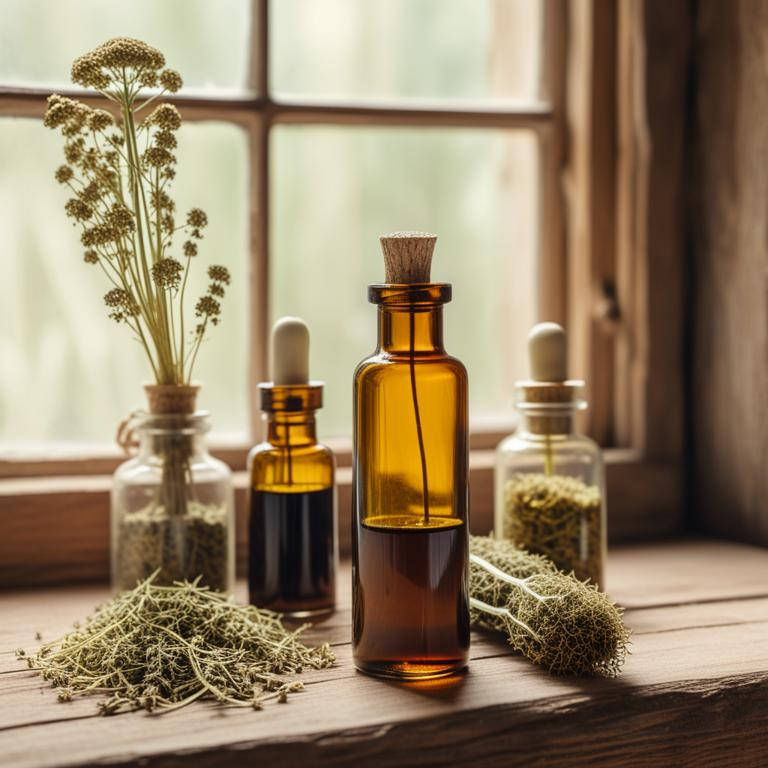
When it comes to upper abdominal pain, herbal preparations can be a great help.
A decoction is a strong liquid made by boiling herbs in water. It's often used for digestive issues like bloating and gas. Ginger decoction, for example, can help ease nausea and stomach discomfort. An infusion is another way to enjoy herbs. It's made by steeping herbs in hot water, then straining the liquid. Peppermint infusion can calm an upset stomach and ease cramps. Herbal tinctures are liquid extracts that are highly concentrated.
They're usually taken in small amounts, often with water or food. Dandelion tincture, for instance, can help stimulate digestion and reduce bloating. Capsules are a convenient way to take herbs. They're filled with dried, powdered herbs that have been tested for quality and potency. Capsules of meadowsweet can help soothe stomach ulcers and reduce inflammation. A poultice is a paste made from ground herbs that's applied directly to the skin. It's often used to relieve pain and inflammation. A poultice made with chamomile can help ease stomach cramps and discomfort.
In addition to these preparations, herbal remedies can be used in various forms, such as teas, syrups, and salves.
Additional Resources:
What herbs are not recommended for people with upper abdominal pain?
If you're experiencing upper abdominal pain, it's crucial to be cautious with certain herbs.
Taxus baccata, also known as yew, contains a toxic compound called taxine, which can cause severe damage to your liver and heart. Consuming Taxus baccata can lead to nausea, vomiting, and even organ failure. Aristolochia clematitis, or birthwort, contains a toxic compound called aristolochic acid, which can cause severe kidney damage and even lead to kidney failure. If you have upper abdominal pain, consuming this herb can worsen your condition and put your kidneys at risk. Strychnos nux-vomica, or the strychnine tree, contains a highly toxic compound called strychnine.
This herb can cause severe abdominal pain, nausea, and vomiting, and can even lead to seizures and coma in extreme cases. If you're experiencing upper abdominal pain, consuming Strychnos nux-vomica can make your symptoms much worse. Veratrum album, or white hellebore, contains toxic compounds that can cause severe abdominal pain, nausea, and vomiting. Consuming this herb can also lead to heart problems and even organ failure. If you have upper abdominal pain, it's essential to avoid Veratrum album to prevent further complications. Digitalis purpurea, or foxglove, contains a toxic compound called digoxin, which can cause severe heart problems and even lead to heart failure.
While digitalis purpurea is sometimes used to treat heart conditions, consuming it can have devastating effects if you have upper abdominal pain, as it can worsen your condition and put your heart at risk.
FAQ
Are there any specific herbs that can prevent upper abdominal pain?
Ginger and peppermint are herbs that may help with upper abdominal pain.
They have natural anti-inflammatory properties that can ease discomfort. Ginger can also help with digestion, while peppermint can calm stomach muscles and reduce cramping.
Some people find relief from these herbs, but their effectiveness can vary from person to person.
Is it safe to use herbal remedies for upper abdominal pain during pregnancy?
During pregnancy, upper abdominal pain can be a concern.
Herbal remedies may seem like a natural solution, but it's essential to be cautious. Some herbs, like pennyroyal and blue cohosh, can cause complications or even miscarriage.
Always research the herb thoroughly and understand its potential effects on your pregnancy before using it.
Are there any herbs that can reduce the frequency of upper abdominal pain?
Ginger has been shown to help reduce upper abdominal pain.
This is because ginger has natural anti-inflammatory properties that can help soothe the stomach and ease discomfort. Some people also find that peppermint helps calm the digestive system and reduce pain.
These herbs may help alleviate symptoms, but their effectiveness can vary from person to person.
Can i combine different herbal remedies for upper abdominal pain?
You can combine different herbal remedies for upper abdominal pain, but be cautious.
Some herbs can interact or have similar effects, so use them in moderation. For example, ginger and peppermint can help soothe stomach issues, while chamomile can calm digestive problems.
Balance and moderation are key when using multiple remedies.
Related Articles

Stomach Cramps: Effective Herbal Preparations and Medicinal Plants
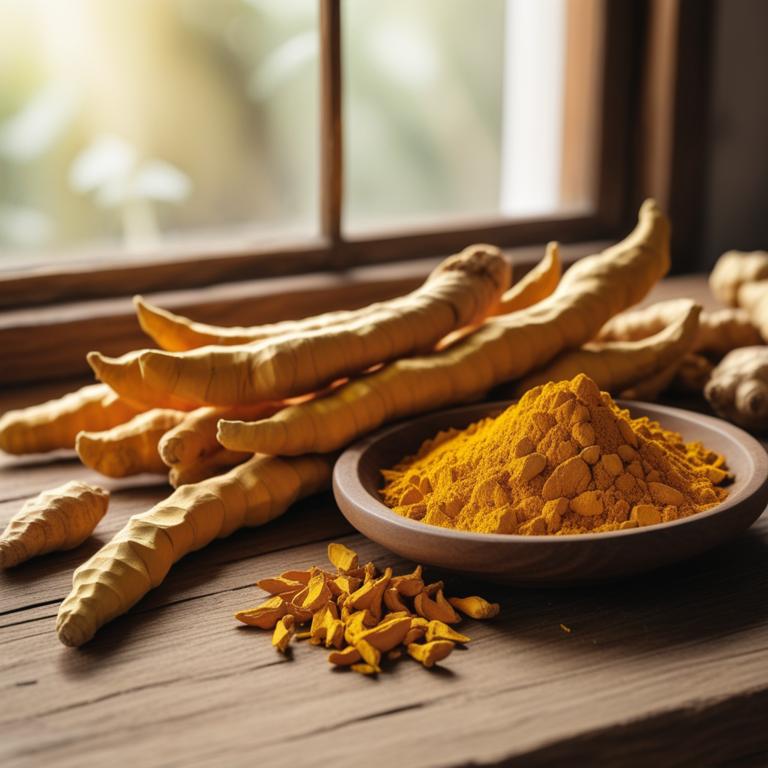
Understanding Gastritis: Causes and Natural Relief with Medicinal Herbs
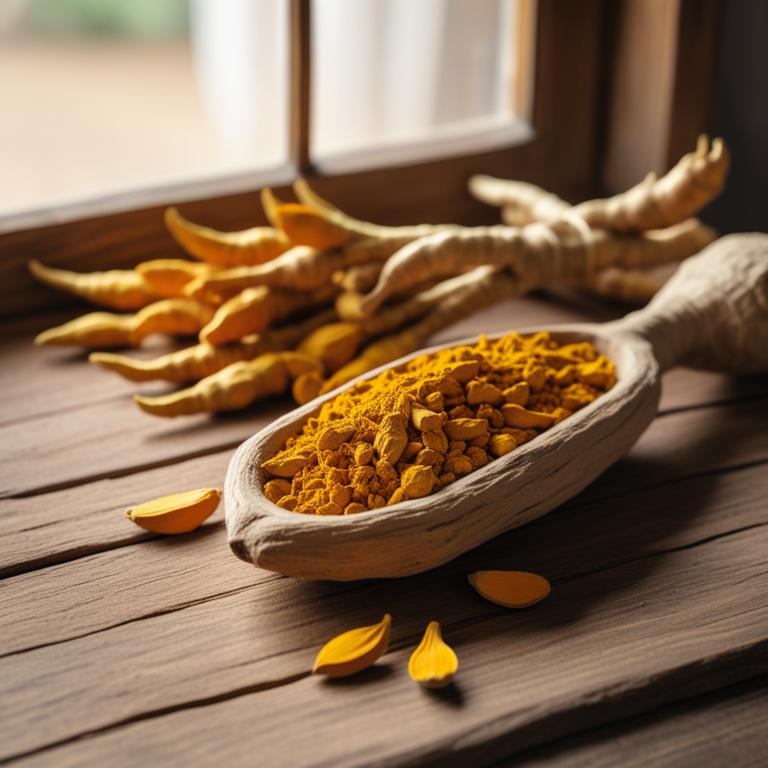
Causes and Herbal Treatments for Upper Abdominal Pain
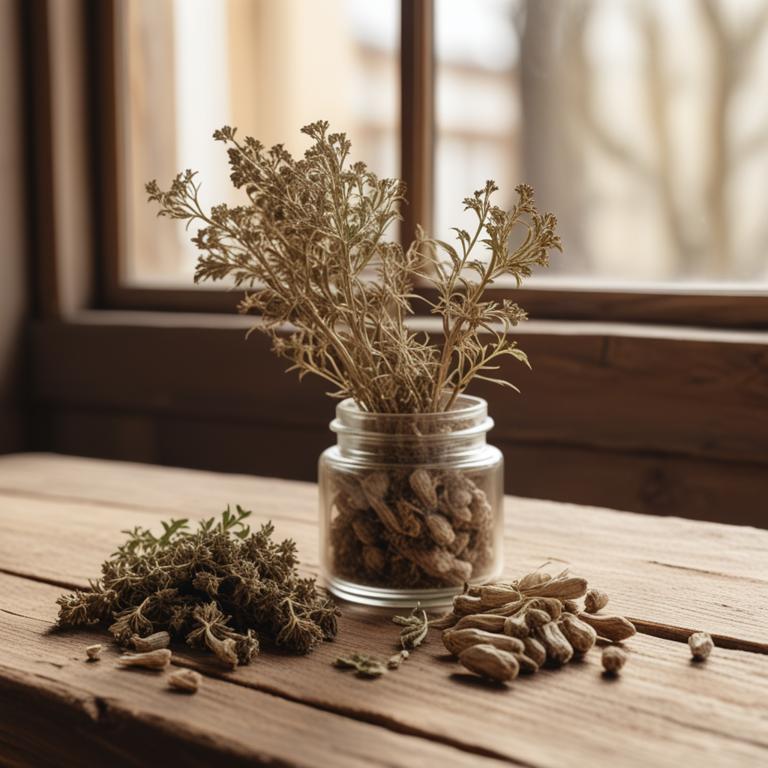
Queasy Stomach Causes and Herbal Remedies: A Comprehensive Guide
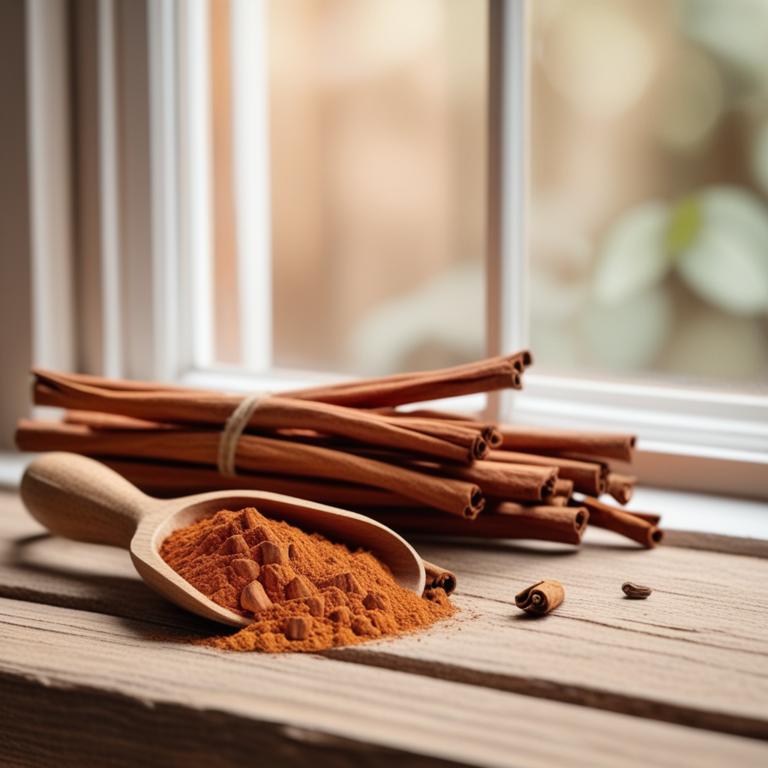
Sour Taste in Mouth: A Guide to Medicinal Herbs and Preparations
